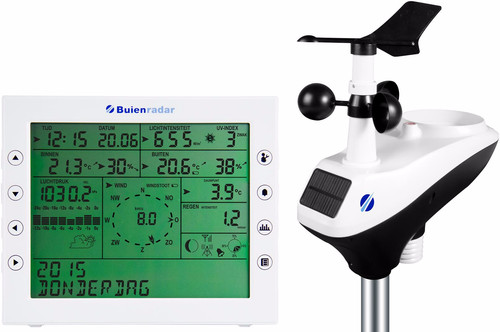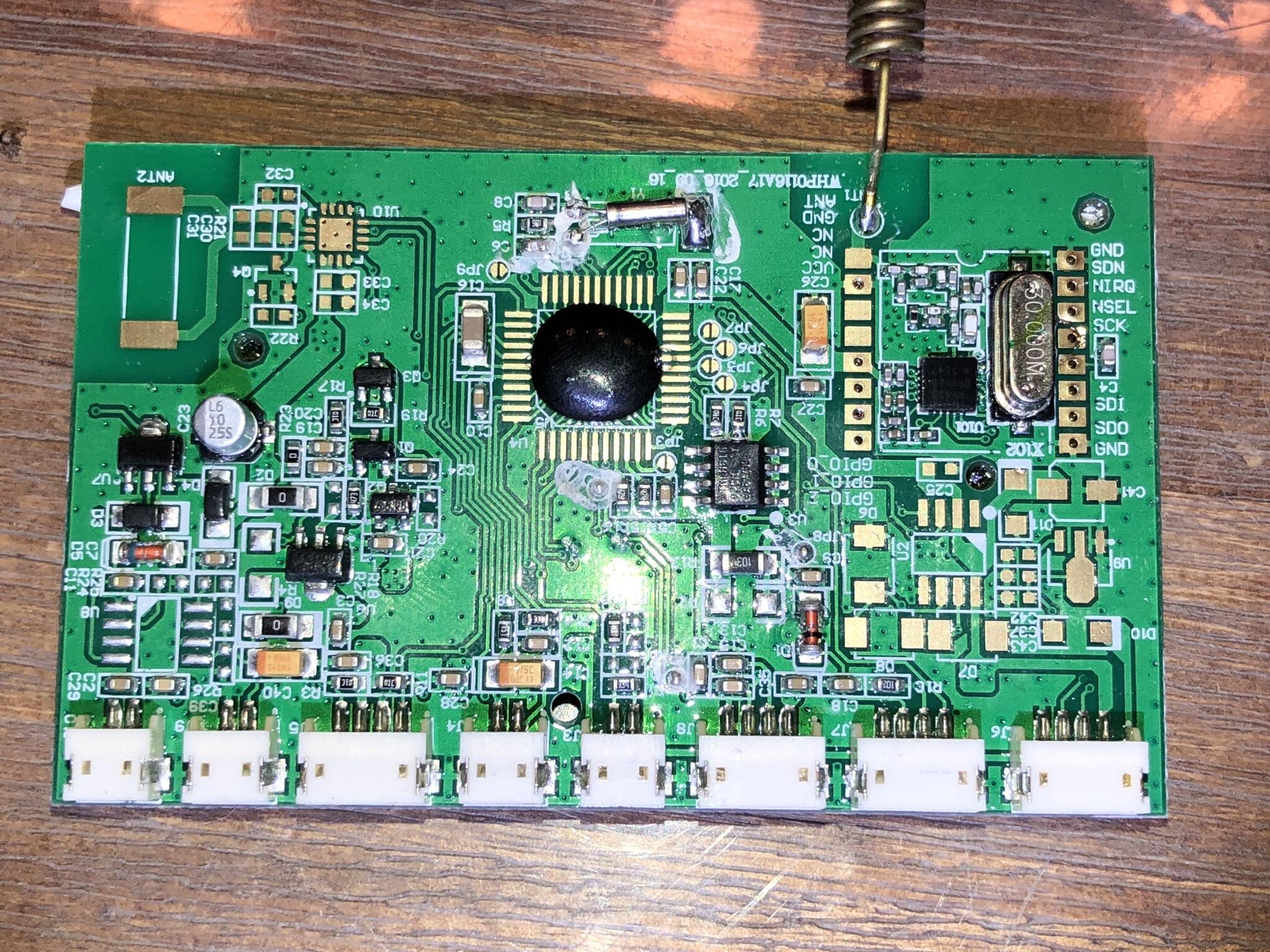My local sailing club has a Buienradar BR-1800 weather station with its indoor unit in the start/finish venue. There it is inaccessible to the sailors. I have some past experience in weather stations. I was the first to receive FSK signals from a WH1080 weather station. Before that time OOK was the modulation of choice. As sailor I actually want to be able to read the local wind and direction, preferable also from home. So I set out to make this weather station internet connected.
I started googling on to my surprise I found only questions of people who wanted to connect this to for example Domoticz but no easy solutions that I could reuse. Later I learned that there is an implementation which is copied by one or two others. That was after the fact!. Googling on reverse engineering or rf protocol for the BR-1800 I found two useful pieces of information. The first indicated that the BR-1800 is a Fine Offset WH-2300 and it had two spreadsheets with the RF protocol (RF properties and packet format). Searching of WH-2300 did not result in more knowledge. The second interesting information was a picture of the internal PCB that showed a footprint of the radio module used. I quickly recognized that as a HopeRF RFM22.
The FSK signals are compatible across a range of HopeRF radio’s. Together with the protocol spreadsheet there was enough information to get me started. I pulled a STM32-based Jeenode Zero with RFM69 radio form the box and set up a PlatformIO environment using the jeelabs/Jeeh library as a lib_deps. With reusing some code and register settings form my earlier WH1080 work I was able to quickly make a receiver implementation.
So I went to the sailing club (sailed a bit first), opened my laptop and after a few minutes I had received the raw data of several packets. Back home! After studying a bit and comparing to the expected protocol I noticed that the payload was too short and I actually recognized it. I hooked up the WH1080 packet decoder and indeed, WH1080 / WS400 signals. There is another station at the club, maybe on a boat. But I should have received Buienradar BR-1800 signals as well. Same frequency and bitrate.
The next day I went back to the club and decided to inspect the indoor unit. It had no reception of the outdoor unit. So I took a long ladder and removed the outdoor unit and brought it home. checking the batteries learned that the rechargeable NiM-hydrides were completely flat. So much for a solar recharging system. After fixing this and hooking up the Jeenode Zero again I started receiving the signals. After tweaking a bit with preamble and syncword detection settings I was receiving over 80% of the transmitted packages. Next step: Decoding.
As the format is clearly related to the WH-1080 and using the rf protocol spreadsheet it was not too difficult to write the decoding algorithm. The CRC turned out to be the same as for the WH-1080. By now I had realized that this outdoor unit “architecture” is actually better known as WH24. There are some FCC records for clearance in the USA. Searching on WH24 I finally found source code in Benjamin Larsson repository. In this file details of the protocol and decoding can be found. I used this to “compare notes” and copied code to derive the UV-index. In the end it turns out that the BR-1800 uses a different UV-index scale.
After hooking up the Jeenode Zero with RFM69 I started to receive some packets. With some tuning of preamble and syncword detection I receive over 80% of the transmissions. At this point in time I have a working implementation.
RF69 #17: 24 3c ce 62 19 63 0f 03 00 02 00 00 00 00 00 a9 c9
r 116 l 2 a-1525
checksum ok crc ok
ID: 3C, T=13.7°C, relH=99%, Wvel=2.1m/s, Wmax=3.4m/s, Wdir=206°, Rain=0.6mm, UV=0, UVindex=0, Light=0.0, battery ok
The final goal is to connect the Buienradar BR-1800 with wifi to the internet. ESP32 is a very useful solutions. They are available with HopeRF (RFM95/RFM96) and SemTech (SX1276/SX1278) Lora modules. So would a Lora module be able to receive the FSK modulated signals. The answer is yes which I will explain in a next post.
Source code will become available on github/sevenw after finishing the project and some cleanup.

